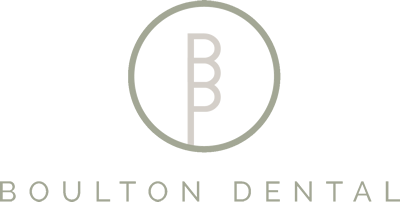
20 May Why are my gums bleeding?
Bleeding when you brush or floss your teeth should not be a normal part of your dental hygiene routine. If you bled from anywhere else from your body when you clean it you would assume something is wrong… but many people ignore bleeding gums as a symptom of a greater problem. If there isn’t any pain, then there is no issue right?
Wrong. If you are starting to experience bleeding gums during brushing or flossing it should not be ignored, especially if it is occurring more and more frequently.
First lets go over some very basic reasons you might be experiencing bleeding gums.
If you have recently changed your oral hygiene routine your gums might just be growing accustomed to the changes. If you are brushing and flossing properly (which is important to combat bacteria and plaque) the bleeding will subside within the first week or so.
Swapped to a new toothbrush? If you have changed the bristle strength of your toothbrush you might experience some bleeding. We recommend switching to/using a soft bristled and take note if things improve.
Over-aggressive brushing? If you think your bristle strength is OK it could be your technique causing the issue. Proper brushing is important, but this does not mean forceful brushing. Some pressure should be applied, but it’s better to think of brushing as giving your teeth a massage (and not a beating). If your toothbrushes commonly end up with splayed ends it’s likely you are pressing too hard.
Flossing Changes? If you have recently added flossing to your routine your gums may bleed. It is also common that if you spend a bit of time between flossing your gums may also experience some bleeding. This kind of bleeding will stop in a day or two as long as you stay consistent. If you always experience bleeding during flossing it may be a sign of a deeper issue (see below).
If you are experiencing bleeding that does not match any of the above it may be a sign of a deeper issue.
Gingivitis – Gingivitis is a condition where plaque collects around the gum line. It is painless but also one of the first stages of gum disease. Gingivitis causes inflammation in the gums, and your gums will push away from your teeth which creates space where bacteria can collect and breed. This inflammation is a result of bacteria collecting on the teeth and gums.
Many people are not even aware that they have gingivitis due to the lack of pain and hard to recognise symptoms. Bleeding gums are an obvious sign that gingivitis could be developing, as well as red, tender and swollen gums.
Sometimes regular brushing is not enough to protect against this condition, as proper technique is more important. If recognised in the early stages, gingivitis can be reversed by adopting a proper oral care routine. Otherwise the condition will naturally worsen. Gingivitis can advance to a far more serious condition known as periodontitis which is a major cause of tooth loss in adults.
Periodontal Disease – An advanced form of gum disease, where certain types of bacteria start to eat away at the bone and ligaments around your teeth. This type of infection can take years to cause pain, at which point the bone loss is so bad that an abscess forms in between the tooth and the gum. Eventually the periodontal disease will become so advanced that you will start to get loose teeth. These teeth may even be lost over time. This type of infection increases inflammation within your body and greatly increases your risk of having a heart attack or stroke.
Medications
A change of medications can also change the way your gums react to the stimulus of your oral care routine. Some drugs can cause inflammation within your gums and make them puffy and bleed more.
If you are taking medications that affect your gums you need to pay close attention when brushing or flossing. It may be necessary to switch to a softer toothbrush to reduce the pressure on the gums.
The most important thing though, is to inform your dentist and get the best advice based on your medications. Your dentist will have the most appropriate advice for your specific situation.
What is the best oral care routine?
We have talked a lot above about making sure your oral care routine is appropriate. Below is our recommendation for a good oral hygiene routine, especially if your goal is to stop bleeding gums.
- Brush twice a day (morning + evening)
- Floss at least once a day (evening)
It is also important to consider what you are putting in your mouth throughout the day. Avoid snacking between meals, especially sugary snacks or sugary drinks. For optimal gum health you should not smoke at all, tobacco use will damage the overall health of the mouth.
And last but not least, it is important to schedule regular dental checkups. Book here or call us on (02) 4961 6300

Sorry, the comment form is closed at this time.